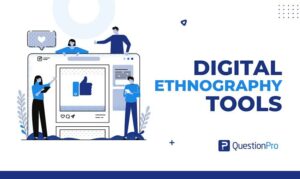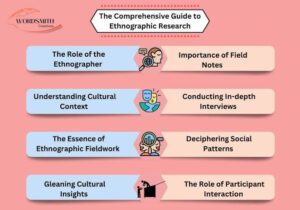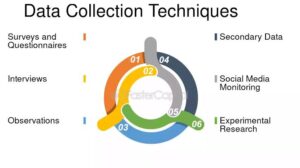Back to: Botany 500 Level
My ever-curious Afrilearn pikin, how you dey today?
I dey feel am for body say your hunger for knowledge no dey ever tire—and that na sign of true greatness. Today, we wan reason about Ethnographic Tools like interviews and surveys. No worry, I go break am down so you go understand how important dem be, especially when you dey study plants, culture, or how people use natural resources for daily life.
Ethnographic tools (interviews, surveys)
Imagine say you wan learn how villagers in Kwara State dey use Ogbono seed for medicine or why some people still plant yam with traditional methods. The best way to find out no be just to guess or read online—it na to go meet the people wey dey live that life and ask dem directly. That na where ethnographic tools enter.

These tools help researchers collect real stories, experiences, and knowledge from communities. Dem no just give you raw data—they give you deep insight into human life and culture.
What Are Ethnographic Tools?
Ethnographic tools na methods wey researchers dey use to study people’s behaviours, beliefs, culture, and interactions with their environment—especially from the people’s own point of view.
The two most common tools na:
- Interviews
- Surveys
- Interviews
This one na face-to-face conversation between the researcher and the person wey get the information. It fit be structured (with fixed questions), semi-structured (some flexibility), or unstructured (free flow of gist).

Example:
You fit interview a traditional herbalist to learn how dem prepare herbs to treat fever. You go ask questions like:
- “Which plant you dey use?”
- “How you take know say the medicine dey work?”
- “Who teach you this method?”
Advantages:
- Gives deep, detailed information.
- Helps you build trust and respect for traditional knowledge holders.
- You fit ask follow-up questions to clarify.
- Surveys
This na set of written or spoken questions wey you give to many people at once. Dem dey useful if you want gather information from a large group.
Example:
You wan know how many farmers in your LGA still use local seed varieties. You create a form with simple questions like:
- “Do you use traditional or improved seeds?”
- “Which crops do you grow every season?”
Advantages:
- Good for gathering data from many people.
- Easy to analyse and compare responses.
- Helps identify patterns in knowledge or behaviour.
Other Ethnographic Methods (Wey Fit Support Interviews and Surveys):
- Participant Observation: You join community activities, like planting or harvesting, and observe how dem do am.
- Focus Group Discussions: You gather small groups to talk about a topic together—this encourages shared stories.
- Photography/Video: To document practices or tools in use.

Summary:
- Ethnographic tools help researchers understand people and their knowledge.
- Interviews give in-depth understanding from individuals.
- Surveys collect data from many people for wider analysis.
- These tools are very useful in studying traditional plant use, agriculture, and cultural practices.
Evaluation:
- What is the purpose of ethnographic tools in research?
- State two differences between interviews and surveys.
- Mention one advantage of using interviews.
Na this kind clear head and heart wey care about people and the environment go make you shine bright for your studies and beyond. With Afrilearn by your side, you fit go anywhere and ask the right questions wey go change the world. Keep showing up—you’re already making us proud!
